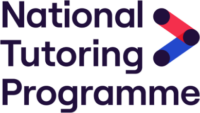The Prevention of Radicalisation and Extremism
Beeston Primary School is fully committed to safeguarding and promoting the welfare of all its pupils. As a school we recognise that safeguarding against radicalisation is no different from safeguarding against any other vulnerability.
On 1 July 2015 the Prevent Duty (section 26) of The Counter-Terrorism and Security Act 2015 came into force. This duty places the responsibility on local authorities to have due regard to the need to prevent people from being drawn into terrorism.
Radicalisation is defined as the act or process of making a person more radical or favouring of extreme or fundamental changes in political, economic or social conditions, institutions or habits of the mind.
Extremism is defined as the holding of extreme political or religious views.
As part of Beeston Primary School’s commitment to safeguarding and child protection we fully support the government’s Prevent Strategy.
What is the Prevent Strategy?
The Prevent Strategy is a government strategy designed to stop people becoming terrorists or supporting terrorism. It:
Responds to the ideological challenge we face from terrorism and aspects of extremism, and the threat we face from those who promote these views
Provides practical help to prevent people from being drawn into terrorism and ensure they are given appropriate advice and support
Works with a wide range of sectors (including education, criminal justice, faith, charities, online and health)
The new Prevent Duty, the Department for Education’s SMSC requirements, British Values Guidance and Ofsted’s inspection criteria all require schools to ensure students are aware of risks associated with extremism. We endeavour to do this through our broad and balanced curriculum.
The role of the Curriculum
Our curriculum promotes respect, tolerance and diversity. Children are encouraged to share their views and recognise that they are entitled to have their own different beliefs which should not be used to influence others. By building resilience and self-esteem, children are encouraged to stand firm and be positive about others and not be influenced by negative peer pressure they may encounter. Through our curriculum, we can enable children to think for themselves by providing valuable opportunities for discussing, debating, researching and questioning, set within the context of learning based on sound knowledge and understanding.
Our Personal, Social, Health and Economic (PSHE) and Social, Emotional and Mental Health ( SEMH) provision is embedded across the curriculum, through the You Me PSHE scheme of work. It directs our assemblies and underpins the ethos of the school. It is recognised that children with low aspirations are more vulnerable to radicalisation; therefore we strive to equip our pupils with confidence, self-belief, respect and tolerance as well as setting high standards and expectations for themselves. We actively promoting knowledge, skills and understanding to build the resilience of learners. These complement the key “British Values” of tolerance, respect, democracy and freedom of speech.
Children are regularly taught about how to stay safe when using the internet and are encouraged to recognise that people are not always who they say they are online. They are taught to seek adult help if they are upset or concerned about anything they read or see on the internet.
Children are supported in making good choices from a very young age, so they understand the impact and consequences of their actions on others.
In RE, children learn about all major faiths and visit places of worship wherever possible.
Prevent Risk Assessment>
We maintain a detailed Prevent Risk Assessment, which is reviewed regularly to ensure we are addressing any emerging risks in our school community. This assessment helps us:
– Identify potential vulnerabilities
– Put in place appropriate measures
– Monitor and evaluate the effectiveness of our approach
Prevent Leaflet>


